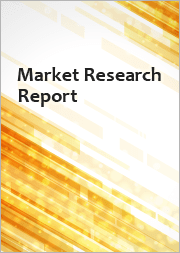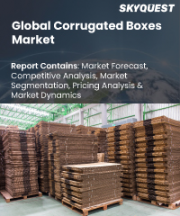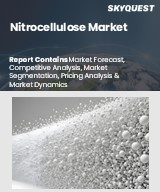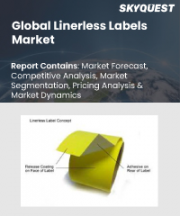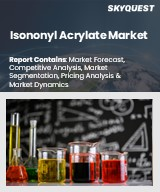
|
시장보고서
상품코드
1736784
인쇄 잉크 시장 : 프로세스별, 수지 유형별, 용도별, 지역별(2026-2032년)Printing Inks Market By Process (Gravure, Flexographic, Lithographic), Resin Type (Modified Rosin, Modified Cellulose), Application (Corrugated Cardboards, Flexible Packaging), & Region for 2026-2032 |
||||||
인쇄 잉크 시장 평가(2026-2032년)
인쇄 잉크 수요 증가는 특히 음식, 화장품, 의약품, 전자상거래 등 급성장하는 포장 비즈니스가 주요 요인이 되고 있습니다. 소비자가 보다 지속 가능한 포장을 요구하는 가운데, 생산자는 규제 요건을 웃도는 환경 친화적이고 고품질의 잉크를 요구하고 있습니다. 파우치, 카톤, 라벨 등의 연포장에는 컬러풀하고 오래 지속되며 소비자와 환경에 안전한 잉크가 필요하며, 이로 인해 시장은 2024년 374억 7,000만 달러의 수익을 돌파했고, 2032년에는 약 455억 6,000만 달러의 평가액에 이를 전망입니다.
수성 잉크 및 UV 경화형 잉크의 개발과 같은 인쇄 공정에서의 지속가능성의 진보는 환경 친화적인 선택의 채택을 뒷받침하고 있습니다. 기업이 환경에 미치는 영향을 경감하는 것을 목표로 하고 있기 때문에, 이러한 기술이 받아들여져 인쇄 잉크 시장을 전진시키고 있습니다. 이러한 이유로 다양한 업계와 용도로 인쇄 잉크의 수요가 높아지고 있으며, 시장은 2026-2032년 2.73%의 CAGR로 성장할 것으로 예상됩니다.
인쇄 잉크 시장 정의 및 개요
인쇄 잉크는 종이, 플라스틱, 직물, 금속 등 다양한 표면에 텍스트, 이미지, 디자인을 인쇄하기 위해 사용되는 주의깊게 설계된 액체입니다.이 잉크에는 안료, 바인더, 용제, 첨가제가 포함되어 있습니다. 안료는 색을 입히고 결합제는 잉크가 표면에 묻어나는 것을 돕습니다. 용제는 잉크의 흐름과 건조 시간을 조절하고 첨가제는 광택과 내구성, 내습성 등의 품질을 향상시킵니다.
인쇄 잉크는 다양한 산업에서 사용되고 있으며, 그 중에서도 포장은 가장 인기있는 것 중 하나입니다. 포장 분야에서 인쇄 잉크는 고품질의 제품 라벨, 플렉시블 포장, 제품의 시인성과 호소력을 높이는 브랜딩 소재를 제조하기 위해 필수적입니다. 포장에 더해 인쇄 잉크는 서적, 신문, 잡지의 출판에 사용되며, 그 품질과 수명은 선명하고 선명한 이미지나 텍스트를 보증합니다.
인쇄 잉크 수요는 기술의 향상과 환경에 대한 배려가 시장을 변화함에 따라 증가할 가능성이 높습니다. 하나의 큰 동향은 수성 잉크, 대두 잉크, UV 경화형 잉크 등 친환경적이고 지속 가능한 잉크의 사용입니다. 또 다른 주요 추진력은 디지털 인쇄의 등장입니다. 디지털 인쇄는, 특히 포장 및 섬유 산업에 있어서, 소롯트나 주문 제작의 주문에 대응하는, 보다 유연하고 비용 효율이 높은 인쇄 솔루션을 가능하게 합니다.
디지털 인쇄 기술의 채택 확대는 기존의 인쇄 잉크와 특수 인쇄 잉크 수요에 어떤 영향을 미치는가?
디지털 인쇄 기술의 활용 확대는 전통적인 인쇄 잉크와 특수 인쇄 잉크 모두에 대한 수요에 큰 영향을 미쳤습니다. 스미더스사에 따르면 세계 디지털 인쇄 시장은 2019-2029년 CAGR 6.5%로 성장할 전망이며, 2029년까지 2,250억 달러에 이를 것으로 예상됩니다. 이 급성장의 원동력이 되고 있는 것은 디지털 인쇄 기술의 진보로, 납기의 단축, 단납기 인쇄의 비용 대비 효과, 커스터마이즈의 기회의 증가 등의 이점이 있습니다.
미국 환경보호청(EPA)은 미국에서만 매년 약 40억 파운드의 프린터 잉크가 사용되고 있다고 추정하고 있습니다. UV 경화형 잉크와 전도성 잉크를 포함한 특수 잉크 시장은 특히 급속한 확대를 이루고 있습니다. 이 개발은 RFID 태그, 스마트 패키징, 플렉서블 디스플레이 등 다양한 용도의 프린티드 일렉트로닉스에 대한 수요 증가에 힘입은 바가 큽니다. 게다가 포장 산업이 대량 생산에 있어 종래의 인쇄 기술에 계속 의존하고 있는 것도, 종래의 인쇄 잉크에 대한 장기적인 수요의 한 요인이 되고 있습니다.
특정 인쇄 잉크에 포함된 잔류 화학물질 및 휘발성 유기 화합물(VOC)에 대한 노출별 장기적인 건강 위험의 가능성이란?
특정 인쇄 잉크에 포함된 잔류 화학 물질 및 휘발성 유기 화합물(VOC)에 장기 노출은 건강에 해를 끼칠 수 있습니다. 이러한 위험의 심각성은 관련된 특정 화학 물질, 노출의 정도와 기간, 개인의 취약성 등 여러 가지 요인에 의해 결정됩니다. 게다가 VOC에 대한 폭로는 천식 환자의 천식을 악화시켜 발작을 일으키거나 악화시킬 수 있습니다.
VOC에 노출을 줄이기 위해서는 적절한 환기가 중요합니다. 이는 인쇄 시설과 인쇄 잉크를 사용하고 보관하는 장소에서 특히 중요합니다. 마지막으로 개인의 감수성도 영향을 줍니다. 호흡기 계통에 지병이 있거나 면역계가 저하된 사람은 VOC의 건강 위험에 특히 취약할 수 있습니다. 리스크 요인을 평가하고 폭로를 최소화하는 방법을 조언할 수 있습니다.
목차
제1장 세계의 인쇄 잉크 시장 서문
- 시장 도입
- 조사 범위
- 전제 조건
제2장 주요 요약
제3장 검증된 시장 조사 방법
- 데이터 마이닝
- 밸리데이션
- 1차 자료
- 데이터 소스 일람
제4장 세계의 인쇄 잉크 시장 전망
- 개요
- 시장 역학
- 성장 촉진요인
- 성장 억제요인
- 기회
- Porter's Five Forces 모델
- 밸류체인 분석
제5장 세계의 인쇄 잉크 시장 : 프로세스별
- 개요
- 그라비아
- 플렉소 인쇄
- 리소그래피
- 디지털
- 기타
제6장 세계의 인쇄 잉크 시장 : 수지 유형별
- 개요
- 변성 로진
- 변성 셀룰로오스
- 아크릴
- 폴리아미드
- 기타
제7장 세계의 인쇄 잉크 시장 : 용도별
- 개요
- 골판지
- 연포장
- 태그 및 라벨
- 종이기
- 기타
제8장 세계의 인쇄 잉크 시장 : 지역별
- 개요
- 북미
- 미국
- 캐나다
- 멕시코
- 유럽
- 독일
- 영국
- 프랑스
- 기타 유럽
- 아시아태평양
- 중국
- 일본
- 인도
- 기타 아시아태평양
- 세계 기타 지역
- 라틴아메리카
- 중동 및 아프리카
제9장 세계의 인쇄 잉크 시장 경쟁 구도
- 개요
- 각사 시장 랭킹
- 주요 발전 전략
제10장 기업 프로파일
- DIC Corporation
- Flint Group
- Toyo Ink SC Holdings Co. Ltd.
- Sakata Inx Corporation
- Siegwerk Druckfarben AG & Co. KGaA
- Hubergroup
- T&K Toka Co. Ltd.
- Tokyo Printing Ink Mfg. Co. Ltd.
- Fujifilm North America
- SICPA Holding SA
제11장 부록
- 관련 조사
Printing Inks Market Valuation - 2026-2032
The growing demand for printing inks is primarily driven by the burgeoning packaging business, particularly in food and beverage, cosmetics, medicines, and e-commerce. As consumers want more sustainable packaging, producers seek eco-friendly, high-quality inks that exceed regulatory requirements. Flexible packaging such as pouches, cartons, and labels necessitates inks that are colorful, long-lasting, and safe for consumers and the environment by enabling the market to surpass a revenue of USD 37.47 Billion valued in 2024 and reach a valuation of around USD 45.56 Billion by 2032.
The advancement of sustainability in printing processes such as the creation of water-based and UV-curable inks has also aided in the greater adoption of ecologically friendly choices. As enterprises aim to lessen their environmental impact, these technologies are gaining acceptance propelling the printing inks market forward. Together, these reasons highlight the growing demand for printing inks in a variety of industries and applications by enabling the market to grow at a CAGR of 2.73% from 2026 to 2032.
Printing Inks Market: Definition/ Overview
Printing inks are carefully designed fluids used to print text, images, and designs on a variety of surfaces such as paper, plastic, fabrics, and metals. These inks contain pigments, binders, solvents, and additives. Pigments add color, and binders help the ink stick to the surface. Solvents control ink flow and drying time while additives improve qualities such as gloss, durability, and moisture resistance.
They are used in a variety of industries with packaging being one of the most popular. In the packaging sector, printing inks is critical for producing high-quality product labels, flexible packaging, and branding materials that increase product visibility and appeal. In addition to packaging, printing inks are used in publishing books, newspapers, and magazines where their quality and lifespan assure clear and vibrant images or text.
Demand for printing inks is likely to rise as technological improvements and environmental concerns change the market. One major trend is the use of eco-friendly and sustainable inks such as water-based, soy-based, and UV-curable inks which reduce environmental impact while preserving high-quality output. Another key driver is the advent of digital printing which allows for more flexible, cost-effective printing solutions that cater to short-run and bespoke orders, especially in the packaging and textile industries.
How is the Growing Adoption of Digital Printing Technologies Influencing the Demand for Traditional and Specialty Printing Inks?
The expanding use of digital printing technology has a substantial impact on the demand for both traditional and specialty printing inks. According to Smithers, the global digital printing market is expected to reach USD 225 Billion by 2029 with a compound annual growth rate (CAGR) of 6.5% between 2019 and 2029. This rapid rise is being driven by advances in digital printing technology which provide benefits such as faster turnaround times, cost-effectiveness for short print runs, and increased customization opportunities.
The United States Environmental Protection Agency (EPA) estimates that around 4 billion pounds of printer ink are utilized each year in the United States alone. The specialized inks market which includes UV-curable inks and conductive inks is enjoying particularly rapid expansion. This development is largely due to rising demand for printed electronics in a variety of applications, including RFID tags, smart packaging, and flexible displays. Furthermore, the packaging industry's persistent dependence on traditional printing technologies for large-scale production contributes to the long-term demand for conventional printing ink.
What are the Potential Long-term Health Risks from Exposure to Residual Chemicals and Volatile Organic Compounds (VOCs) found in Certain Printing Inks?
Long-term exposure to residual chemicals and volatile organic compounds (VOCs) found in certain printing inks can be harmful to one's health. The severity of these dangers is determined by several factors including the specific chemicals implicated, the degree and duration of exposure, and individual vulnerability. Furthermore, exposure to VOCs might aggravate asthma in sufferers, causing or exacerbating attacks.
Proper ventilation is critical to limiting VOC exposure. This is especially relevant in printing facilities and locations where printing ink is utilized or kept. Finally, individual susceptibility has an impact. People with pre-existing respiratory problems or compromised immune systems may be particularly vulnerable to the health risks of VOCs. They can assess your risk factors and advise you on how to minimize exposure.
Category-Wise Acumens
What are the Key Factors Driving the Increasing Demand for Lithographic Printing Inks?
The lithographic printing ink category is expected to dominate the market over the forecast period. Lithographic printing offers a great balance of speed, cost, and print quality. It is suitable for a wide range of printing applications such as packaging, commercial printing (brochures, flyers, magazines), and high-quality publications. Because of their versatility, lithographic inks are widely used in a variety of printing applications. Lithographic printing has been the dominant printing method for decades.
Furthermore, the lithographic printing industry has undergone constant advancements in ink formulation. UV-curable inks, low-migration food packaging inks, and energy-efficient inks that reduce drying times are among the developments. These advancements enhance the capabilities and sustainability of lithographic printing, assuring its continued supremacy. As a result, there is a well-developed infrastructure including readily available printing presses, competent personnel, and established lithographic ink supply chains.
Will the Growing Demand for Sustainable and Versatile Packaging Solutions Drive the Application Segment?
Flexible packaging has emerged as the dominating application due to its extensive use in a variety of industries and its capacity to address the growing demand for sustainable and adaptable packaging solutions. Flexible packaging materials such as pouches, bags, and wraps are lightweight, long-lasting, and versatile making them excellent for food and beverage, pharmaceutical, and personal care items. As customer preferences evolve toward accessible, resealable, and environmentally friendly packaging, firms are turning to flexible packaging to extend product shelf life and boost visual appeal.
The advent of e-commerce has increased demand for flexible packaging which offers protective, lightweight, and cost-effective shipping alternatives. This emphasis on sustainable packaging combined with the expansion of the consumer goods industry has positioned flexible packaging as the dominant application for printing inks, far surpassing other areas such as corrugated cardboard, folding cartons, and labels.
Country/Region-wise Acumens
How is the Growing Consumer Demand for Sustainable Packaging Solutions Driving the Demand for Bio-Based and Compostable Printing Inks in the North American Region?
The North American printing ink market is primarily driven by rising consumer demand for environmentally friendly packaging solutions with bio-based and biodegradable inks emerging as major trends. This trend is mostly the result of increased environmental consciousness and stronger rules on packaging waste and recyclability in the region. According to the United States Environmental Protection Agency (EPA), packaging and containers accounted for 28.1% of total municipal solid trash creation in 2018 emphasizing the critical need for more environmentally friendly options.
According to the Sustainable Packaging Coalition, 74% of North American customers are willing to pay a premium for sustainable packaging. In response to this demand, big retailers such as Walmart have pledged to use 100% recyclable, reuse, or compostable packaging for private label products by 2025. These variables combined indicate the significant market drivers for sustainable printing inks in North America, underscoring the industry's transition to more environmentally friendly alternatives.
In What Ways are the Rapid Economic Growth and Rising Disposable Incomes in Developing Nations across the Asia Pacific Region Impacting the Demand for the Market?
The Asia-Pacific region is experiencing the fastest development in the printing ink market owing to strong economic expansion and increased disposable incomes in developing countries. According to the International Monetary Fund (IMF), the Asia-Pacific region is expected to develop by 4.6% in 2023 and 4.4% in 2024, exceeding world economic growth. This economic impetus is mirrored in expanding disposable incomes with the Asian Development Bank estimating that the region's middle-class population will reach 3.5 billion by 2030, accounting for 65% of the global middle class.
This economic expansion has a direct impact on the printing ink industry with the Asia Pacific region likely to dominate the worldwide market share. According to Verified Market Research, the regional market was valued at $6.43 billion in 2020 and is expected to rise at a CAGR of 3.9% to USD 8.71 Billion by 2028. These statistics demonstrate the considerable impact of economic expansion and rising affluence on the Asia Pacific printing ink business.
Competitive Landscape
The Printing Inks Market is a dynamic and competitive space, characterized by a diverse range of players vying for market share. These players are on the run for solidifying their presence through the adoption of strategic plans such as collaborations, mergers, acquisitions, and political support. The organizations are focusing on innovating their product line to serve the vast population in diverse regions.
Some of the prominent players operating in the printing inks market include:
Flint Group
DIC Corporation
Siegwerk Druckfarben AG & Co. KGaA
Sakata Inx Corporation
T&K TOKA Corporation
Dainichiseika Color & Chemicals Mfg. Co., Ltd.
DEERS I CO., Ltd.
Epple Druckfarben AG
TOYO INK SC HOLDINGS CO., LTD.
Hubergroup
TOKYO PRINTING INK MFG CO., LTD
Latest Developments
In August 2023, Flint Group, a global maker of print consumables, reinforced its reputation as the preferred sustainable ink supplier in August 2023 by announcing that all of its Sheetfed process ink series are now mineral oil-free. Flint Group's K+E process line is now exclusively created from more sustainable formulas, as part of initiatives to enhance the use of ecologically friendly raw ingredients and make packaging more recyclable.
In January 2022, Sun Chemical bought SAPICI in January 2022, improving its supply strategy and expanding its capabilities to develop and build novel polymers for the company's whole line of inks, coatings, and laminating adhesives.
Printing Inks Market, By Category
- Process:
- Gravure
- Flexographic
- Lithographic
- Digital
- Others
- Resin Type:
- Modified Rosin
- Modified Cellulose
- Acrylics
- Polyamide
- Others
- Application:
- Corrugated Cardboards
- Flexible Packaging
- Tags & Labels
- Folding Cartons
- Others
- Region:
- North America
- Europe
- Asia-Pacific
- South America
- Middle East & Africa
TABLE OF CONTENTS
1 INTRODUCTION OF GLOBAL PRINTING INKS MARKET
- 1.1 Introduction of the Market
- 1.2 Scope of Report
- 1.3 Assumptions
2 EXECUTIVE SUMMARY
3 RESEARCH METHODOLOGY OF VERIFIED MARKET RESEARCH
- 3.1 Data Mining
- 3.2 Validation
- 3.3 Primary Interviews
- 3.4 List of Data Sources
4 GLOBAL PRINTING INKS MARKET OUTLOOK
- 4.1 Overview
- 4.2 Market Dynamics
- 4.2.1 Drivers
- 4.2.2 Restraints
- 4.2.3 Opportunities
- 4.3 Porters Five Force Model
- 4.4 Value Chain Analysis
5 GLOBAL PRINTING INKS MARKET, BY PROCESS
- 5.1 Overview
- 5.2 Gravure
- 5.3 Flexographic
- 5.4 Lithographic
- 5.5 Digital
- 5.6 Others
6 GLOBAL PRINTING INKS MARKET, BY RESIN TYPE
- 6.1 Overview
- 6.2 Modified Rosin
- 6.3 Modified Cellulose
- 6.4 Acrylics
- 6.5 Polyamide
- 6.6 Other
7 GLOBAL PRINTING INKS MARKET, BY APPLICATION
- 7.1 Overview
- 7.2 Corrugated cardboards
- 7.3 Flexible packaging
- 7.4 Tags & Labels
- 7.5 Folding cartons
- 7.6 Others
8 GLOBAL PRINTING INKS MARKET, BY GEOGRAPHY
- 8.1 Overview
- 8.2 North America
- 8.2.1 U.S.
- 8.2.2 Canada
- 8.2.3 Mexico
- 8.3 Europe
- 8.3.1 Germany
- 8.3.2 U.K.
- 8.3.3 France
- 8.3.4 Rest of Europe
- 8.4 Asia Pacific
- 8.4.1 China
- 8.4.2 Japan
- 8.4.3 India
- 8.4.4 Rest of Asia Pacific
- 8.5 Rest of the World
- 8.5.1 Latin America
- 8.5.2 Middle East & Africa
9 GLOBAL PRINTING INKS MARKET COMPETITIVE LANDSCAPE
- 9.1 Overview
- 9.2 Company Market ranking
- 9.3 Key Development Strategies
10 COMPANY PROFILES
- 10.1 DIC Corporation
- 10.1.1 Overview
- 10.1.2 Financial Performance
- 10.1.3 Product Outlook
- 10.1.4 Key Developments
- 10.2 Flint Group
- 10.2.1 Overview
- 10.2.2 Financial Performance
- 10.2.3 Product Outlook
- 10.2.4 Key Developments
- 10.3 Toyo Ink SC Holdings Co. Ltd.
- 10.3.1 Overview
- 10.3.2 Financial Performance
- 10.3.3 Product Outlook
- 10.3.4 Key Developments
- 10.4 Sakata Inx Corporation
- 10.4.1 Overview
- 10.4.2 Financial Performance
- 10.4.3 Product Outlook
- 10.4.4 Key Developments
- 10.5 Siegwerk Druckfarben AG & Co. KGaA
- 10.5.1 Overview
- 10.5.2 Financial Performance
- 10.5.3 Product Outlook
- 10.5.4 Key Developments
- 10.6 Hubergroup
- 10.6.1 Overview
- 10.6.2 Financial Performance
- 10.6.3 Product Outlook
- 10.6.4 Key Developments
- 10.7 T&K Toka Co. Ltd.
- 10.7.1 Overview
- 10.7.2 Financial Performance
- 10.7.3 Product Outlook
- 10.7.4 Key Developments
- 10.8 Tokyo Printing Ink Mfg. Co. Ltd.
- 10.8.1 Overview
- 10.8.2 Financial Performance
- 10.8.3 Product Outlook
- 10.8.4 Key Developments
- 10.9 Fujifilm North America
- 10.9.1 Overview
- 10.9.2 Financial Performance
- 10.9.3 Product Outlook
- 10.9.4 Key Developments
- 10.10 SICPA Holding SA
- 10.10.1 Overview
- 10.10.2 Financial Performance
- 10.10.3 Product Outlook
- 10.10.4 Key Developments
11 APPENDIX
- 11.1 Related Research






